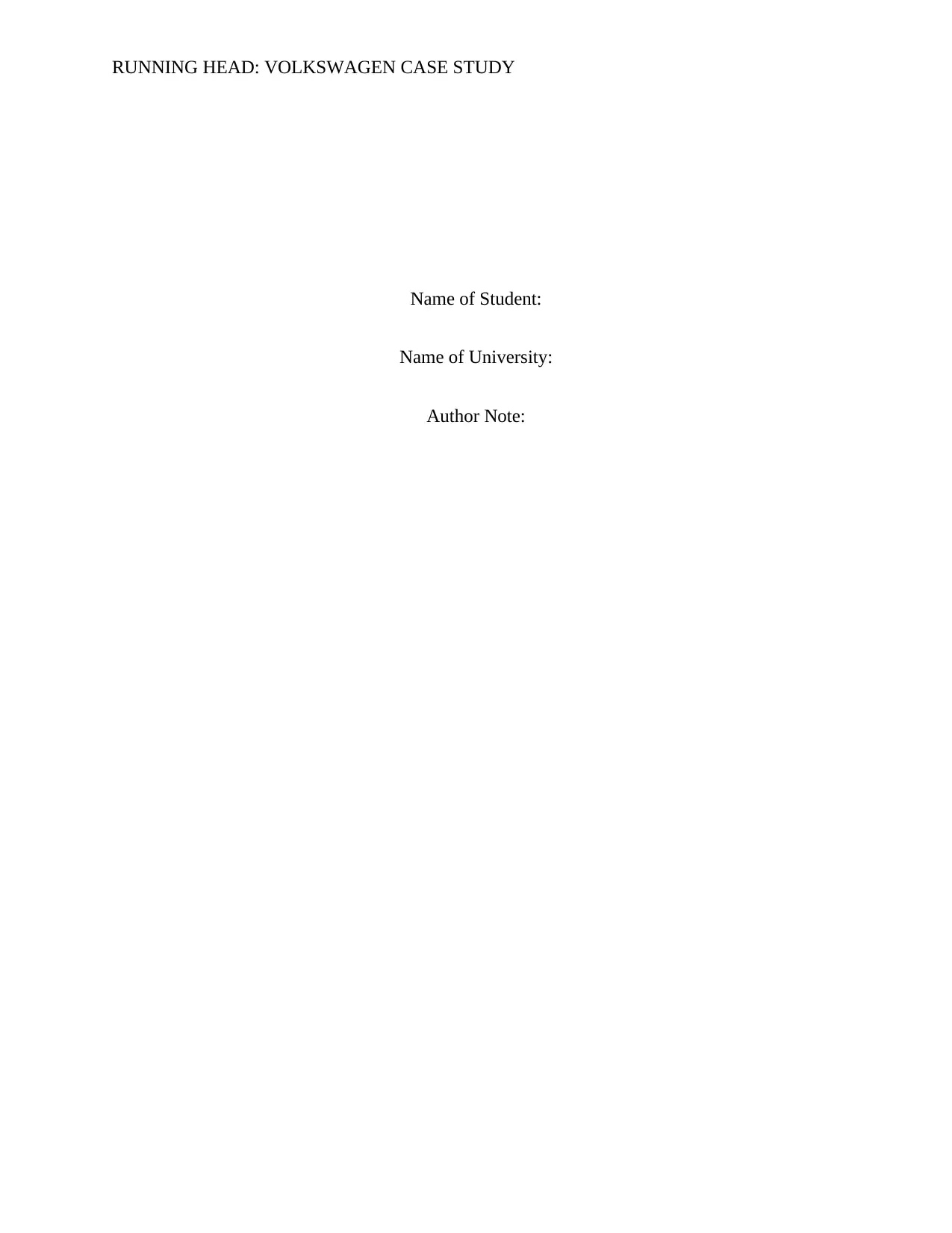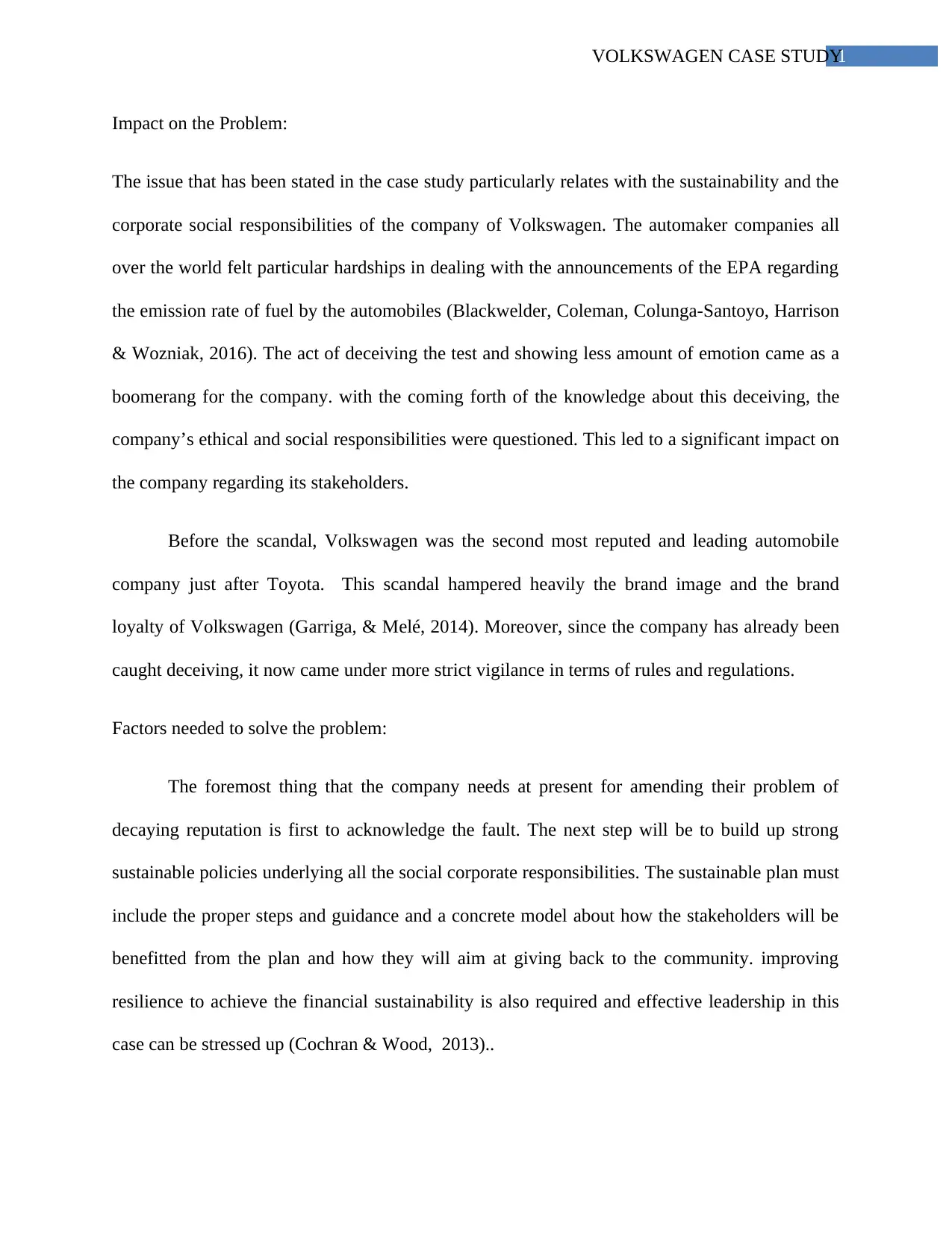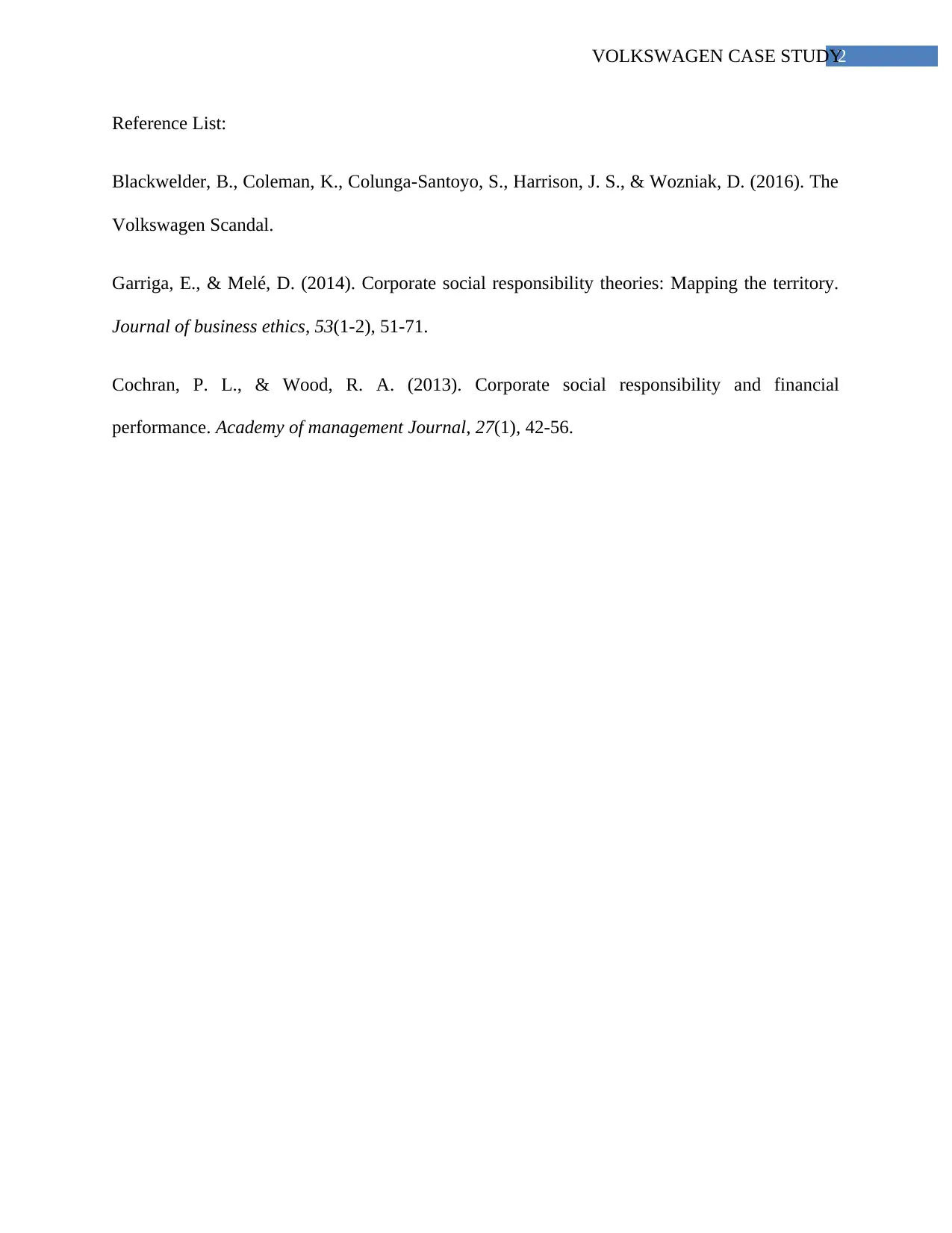Volkswagen Case Study: Analysis of the Emission Scandal
VerifiedAdded on 2022/09/12
|3
|424
|31
Case Study
AI Summary
This case study examines the Volkswagen emission scandal, focusing on its impact on the company's reputation, stakeholder relations, and the need for ethical and sustainable business practices. The assignment analyzes the facts of the scandal, highlighting the company's deceptive practices regarding emission tests and the resulting damage to its brand image and customer trust. The solution emphasizes the importance of acknowledging the wrongdoing, rebuilding trust through transparent communication, and implementing robust corporate social responsibility initiatives. The assignment also explores the PISCO model, which helps in problem-solving by analyzing the problem, inputs, solutions, choices, and operations. The study underscores the importance of proactive measures to ensure financial sustainability and effective leadership in addressing the crisis and restoring the company's standing in the automotive industry. The case study also includes a list of references for further research.
1 out of 3





![[object Object]](/_next/static/media/star-bottom.7253800d.svg)